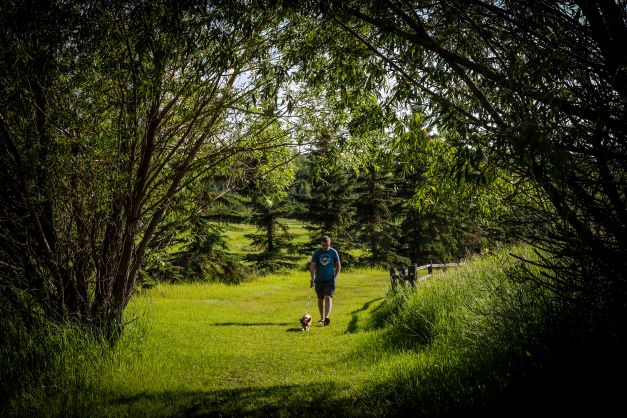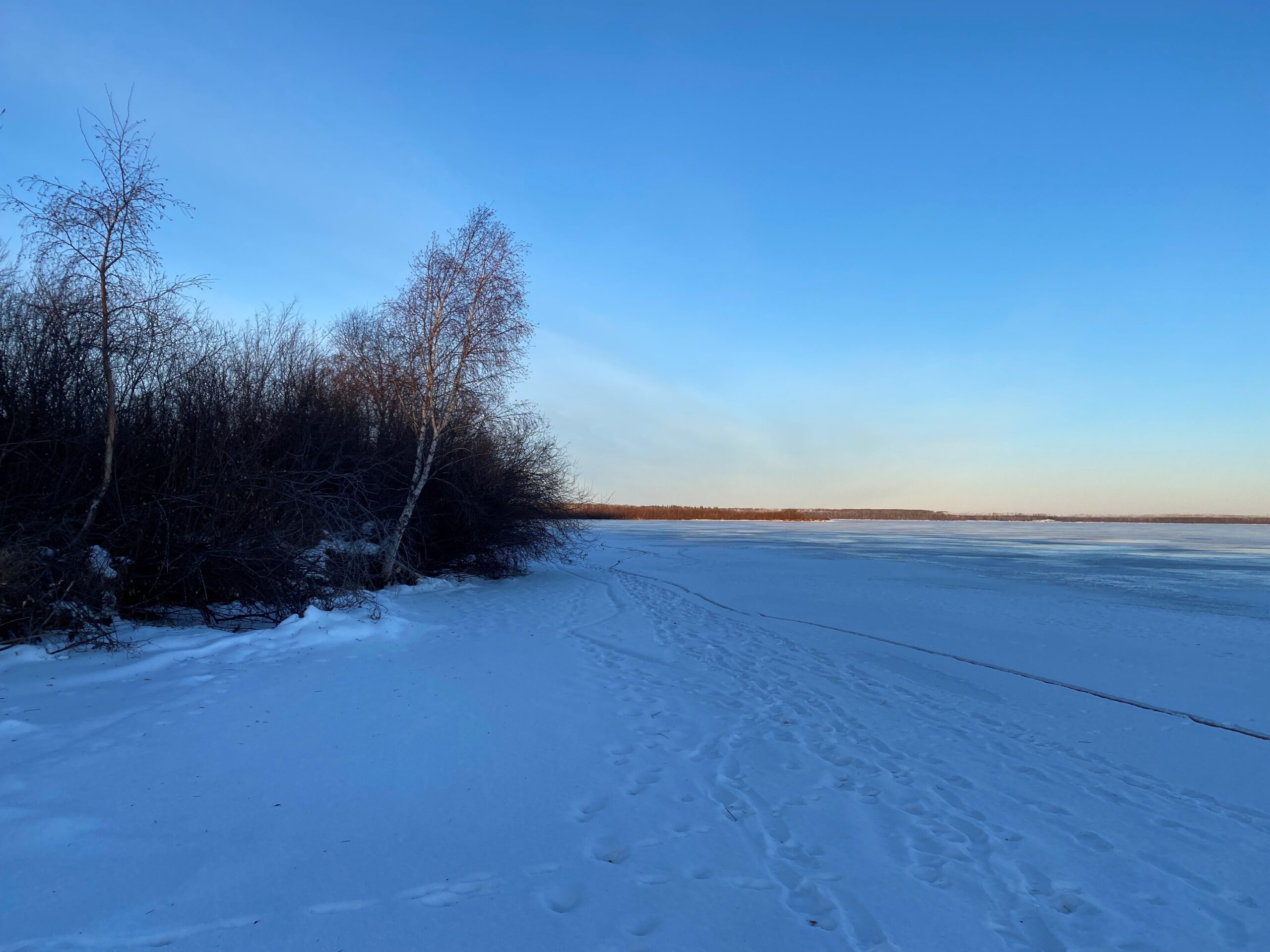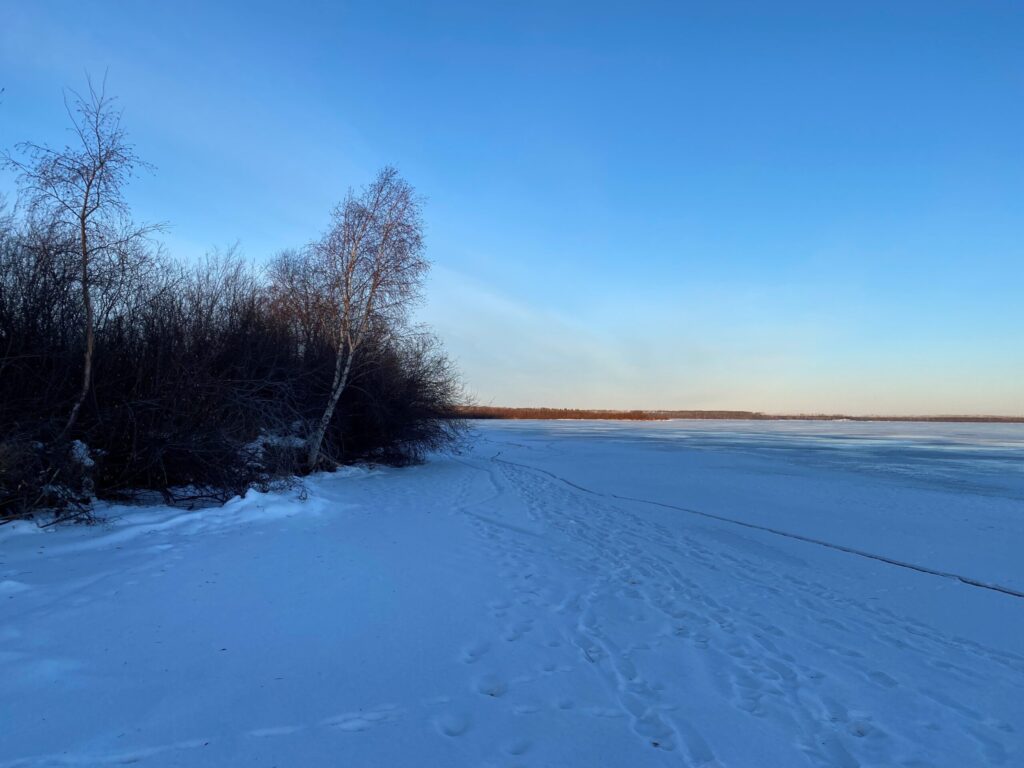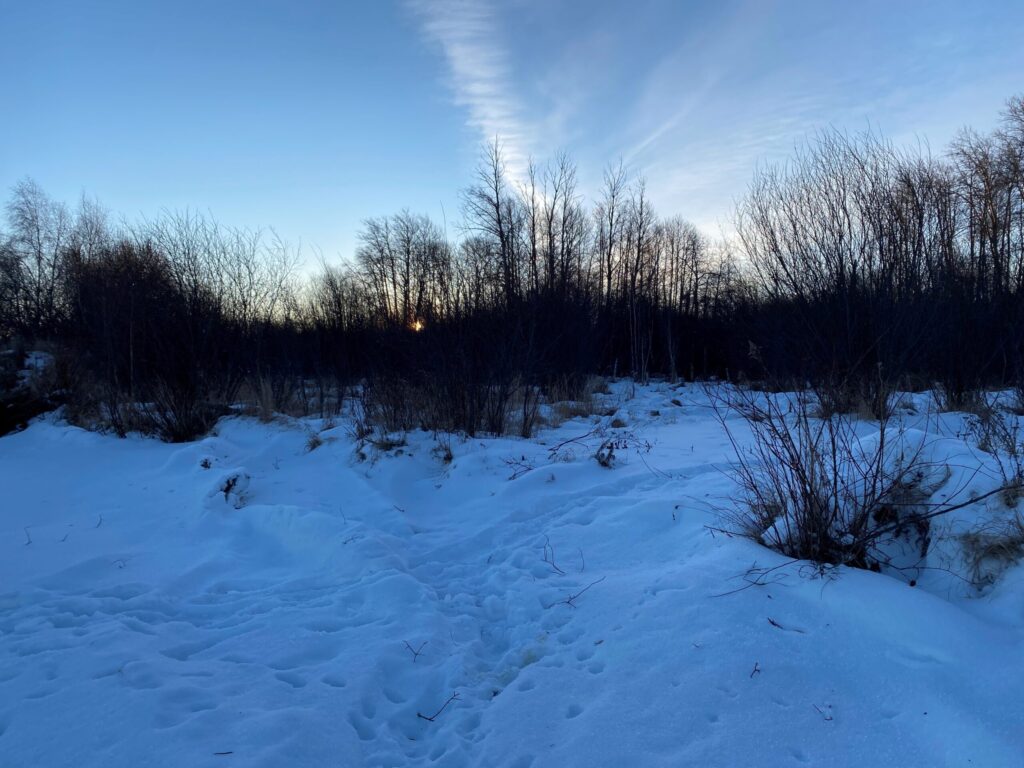Overview
Willow Lake Métis Nation (WLMN) received $80,000 in grant proceeds to complete a Community Climate Risk Assessment and Report, in collaboration with the Resilience Institute, Associated Engineering, and the Prairie Adaptation Research Collaborative.
The risk assessment identifies the climate impacts across three distinct development areas, including bison habitat, future residential developments and/or campsite, and the proposed Heritage Centre.
The project was funded by the Government of Alberta, through the Municipal Climate Change Action Centre’s Climate Resilience Capacity Building Program.
Approach
Willow Lake Métis Nation are a Métis community whose citizen now mostly reside in northern Alberta in the community of Anzac. WLMN’s roots lie in the history of the fur trade in the province, and the economic and political circumstances that evolved during and after the fur trade.
In 2022, WLMN purchased a parcel of land near Anzac, taking the first steps of establishing a permanent home for the community on over 200 acres.
As the community looks to develop their land base, this project was a proactive step to understand the projected climate impacts in the region and to equip with Nation with actions to best protect the land from climate change and inform future climate resilient development.
The project also served as an opportunity to engage with citizens, Elders, youth and staff as the community looks ahead to future developments.
A risk assessment was conducted on lands intended as future habitat for bison, a Heritage Centre, and future residential and campsite developments. It considers impacts across a 30-year time period up to the 2050s.
The project was completed through a collaborative approach with in-depth community involvement, including Elder’s circles, a community meeting, as well as meetings and walks on the land with the project team.
Results
This project resulted in a whole community risk assessment as well as knowledge sharing materials for the community.
The risk assessment produced 222 impact statements which combine knowledge and stories shared by WLMN community members based on their lived experiences of change in the region. 11 statements were considered a very high future risk, with some already occurring today.
Significant risks across all three development areas include wildfire, wildfire smoke, and extreme heat & drought. The report identifies several recommendations to reduce these risks for WLMN to consider before introducing bison to the landscape and proceeding with planned developments.
Recommendations include preparing a bison emergency response plan for evacuating or protecting bison during wildfire events and considering the Heritage Centre for use as an emergency centre.
Benefits
As a result of this project, WLMN staff gained an understanding of projected climate changes and risks in the region, equipping them with the knowledge to engage with industry and regional stakeholders.
In completing this assessment, WLMN is prepared to fully realize their plans to establish a thriving, climate resilient community for generations to come.
Willow Lake Métis Nation’s newly purchased lands were once inhabited by roaming bison, but the lands have since undergone changes due to climate change. To ensure the prosperity of the bison upon their return, we must proactively prepare for future climate shifts. A strategic plan is now being formed to enhance readiness before the bison make their triumphant return.
Michael Robert, CFO Willow Lake Métis Nation





You must be logged in to post a comment.